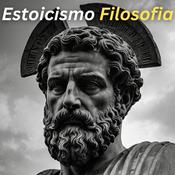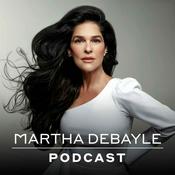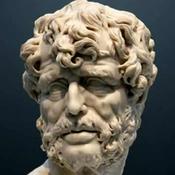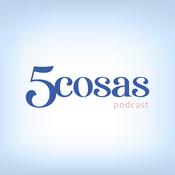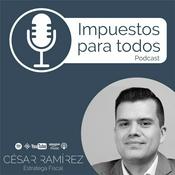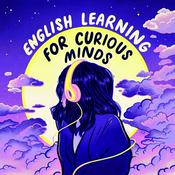141 episodios
Is “I’m Sorry” Biblical? Honor, Social Order, and Forgiveness in Scripture (Joshua Berman) Ep.#240
19/2/2026 | 39 minDoes it matter whether we feel sorry when we ask for forgiveness?
In this conversation, Rabbi Dr. Joshua Berman returns to discuss the surprising findings of his long-term research into forgiveness in the Hebrew Bible. The biblical word slicha (“forgiveness”) appears only in relation to God—not between people. In fact, there is no word for “apology” in biblical Hebrew.
So how were offenses resolved?
Drawing on honor culture studies and examples ranging from Jacob and Esau to Judah and Tamar, Dr. Berman argues that ancient Israel operated within a different moral economy. Reconciliation was not primarily about emotional sincerity or repairing inner feelings—it was about restoring public order and status. Offense disrupted hierarchy; reconciliation restored it.
From duels between Hamilton and Burr to modern military and team dynamics, Berman shows how deeply culture shapes what we mean by “forgiveness.” The result is a paradigm shift that challenges modern Western assumptions about apology, sincerity, and moral transformation.
The conversation concludes with the launch of Dr. Berman’s new podcast, The Bible Bar, dedicated to exploring Scripture chapter by chapter with intellectual and spiritual integrity.
For "The Bible Bar" on Spotify, go here:
https://creators.spotify.com/pod/profile/the-bible-bar/
Or if you prefer the RSS feed:
https://anchor.fm/s/10e77a470/podcast/rss
We are listener supported. Give to the cause here:
https://hebraicthought.org/give
For more articles:
https://thebiblicalmind.org/
Social Links:
Facebook: https://www.facebook.com/HebraicThought
Instagram: https://www.instagram.com/hebraicthought
Threads: https://www.threads.net/hebraicthought
X: https://www.twitter.com/HebraicThought
Bluesky: https://bsky.app/profile/hebraicthought.org
Chapter:
00:00 Introduction and Context of the Conversation
01:04 Exploring Forgiveness in the Hebrew Bible
03:58 Cultural Perspectives on Offense and Forgiveness
07:13 The Role of Hierarchy in Relationships
10:04 Honor Cultures and Their Impact on Forgiveness
13:22 Case Studies: Understanding Offense and Repair
16:15 Conclusion: The Complexity of Forgiveness
18:35 The Dynamics of Status in Jacob and Esau's Relationship
21:08 Understanding Honor Cultures and Their Implications
25:17 The Shift from Honor Culture to Individual Agency
29:29 Modern Applications of Ancient Principles of Reconciliation
33:24 Introducing The Bible Bar PodcastLove, Justice, and the American Prison System: A Biblical Rethink (Abigail Pasiuk) Ep. #239
12/2/2026 | 36 minIn this eye-opening conversation, PhD researcher Abigail Pasiuk joins Dr. Dru Johnson to explore how the Hebrew Bible can inform modern conversations about mass incarceration. Drawing on her personal experience—her father’s time in federal prison—and academic research at Oxford, Abby offers a theologically rich critique of retributive justice models prevalent in the U.S. prison system.
She explains how biblical justice prioritizes restoration and dignity rather than dehumanization, citing key themes such as the Shema and imago Dei. Abby shares firsthand accounts from interviews with incarcerated individuals, exposing everyday indignities—from food labeled “not for human consumption” to being stripped of identity and reduced to a number. With over 80% recidivism in the U.S., Abby points to countries like Norway where restorative practices and the “principle of normalcy” have dramatically reduced reoffense.
The episode challenges listeners to rethink what justice should look like through a biblical lens: not just punishment, but humanizing correction rooted in love. It’s a conversation that bridges theology, criminology, and real human stories—urging the church to see prisoners not as disposable, but as image-bearers.
Follow Abigail's work here:
https://www.theology.ox.ac.uk/people/abigail-pasiuk
We are listener supported. Give to the cause here:
https://hebraicthought.org/give
For more articles:
https://thebiblicalmind.org/
Social Links:
Facebook: https://www.facebook.com/HebraicThought
Instagram: https://www.instagram.com/hebraicthought
Threads: https://www.threads.net/hebraicthought
X: https://www.twitter.com/HebraicThought
Bluesky: https://bsky.app/profile/hebraicthought.org
Chapter:
00:00 Abigail's Journey to Oxford
08:26 The PhD Experience at Oxford
17:18 Research Focus: Mass Incarceration and Justice
27:09 Critique of the Prison System and AlternativesArchaeology of the Everyday: Grounded Theology in Ancient Israel (Backfish & Shafer-Elliott) Ep. #238
05/2/2026 | 32 minWhat if theology isn’t something abstract but grows directly from the soil beneath our feet? In this episode, Dr. Cynthia Shafer-Elliott and Dr. Libby Backfish discuss their new book Grounded Theology, which argues that Israel’s theological reflections were deeply intertwined with daily life—especially as subsistence farmers in a land marked by both promise and struggle.
Drawing on archaeological discoveries from ancient households, the conversation explores how everyday artifacts like loom weights and ovens reveal Israelite religious practices not just in temples, but in kitchens. The land itself—its fertility, harshness, and rhythms—shaped covenantal faithfulness and theological imagination. They challenge modern listeners to reevaluate their own “floating theology” and rediscover the formative power of embodied life, land stewardship, and communal labor.
With humor, honesty, and deep insight, the guests call for a return to theology that is firmly grounded—in history, material reality, and the lived experience of Israel.
You can find Grounded Theology here:
https://bakerpublishinggroup.com/products/9781540962539_grounded-theology-in-the-hebrew-bible
We are listener supported. Give to the cause here:
https://hebraicthought.org/give
For more articles:
https://thebiblicalmind.org/
Social Links:
Facebook: https://www.facebook.com/HebraicThought
Instagram: https://www.instagram.com/hebraicthought
Threads: https://www.threads.net/hebraicthought
X: https://www.twitter.com/HebraicThought
Bluesky: https://bsky.app/profile/hebraicthought.org
Chapters:
00:00 The Need for a New Textbook
03:34 Household Archaeology and Daily Life
10:31 The Role of Land in Theology
15:14 Connecting Ancient Practices to Modern Faith
23:35 Challenges in Theological Education
28:53 Conclusion and Reflections on TeachingRedeeming Eden & Eve: How the Bible Strategically Uplifts Women (Ingrid Faro) Ep. #237
29/1/2026 | 49 minWhy does Scripture so often portray women as central to God’s work of redemption—even in stories of deep dysfunction and failure? In this episode, Dr. Ingrid Faro, Old Testament scholar and interim president of Northern Seminary, joins Dru Johnson to explore her groundbreaking work in Redeeming Eden: How Women in the Bible Advance the Story of Salvation.
Dr. Faro shares how her personal journey through theological trauma, cultic church experiences, and academic discovery led her to reexamine Genesis 1–3 and the women of the Bible. She explains how Hebrew terms like ezer and tzelah (often translated “helper” and “rib”) have been misunderstood, how Eve’s story actually radiates hope, and how strategic female figures consistently propel salvation history forward.
The conversation also tackles misinterpretations of Genesis 3:16, the patterns of dysfunction and healing across the biblical narrative, and what the Bible really says about evil. This episode is a deep and hopeful reconsideration of gender, power, and goodness within the story of Scripture.
You can find Ingrid's "Redeeming Eden" here:
https://zondervanacademic.com/products/redeeming-eden
We are listener supported. Give to the cause here:
https://hebraicthought.org/give
For more articles:
https://thebiblicalmind.org/
Social Links:
Facebook: https://www.facebook.com/HebraicThought
Instagram: https://www.instagram.com/hebraicthought
Threads: https://www.threads.net/hebraicthought
X: https://www.twitter.com/HebraicThought
Bluesky: https://bsky.app/profile/hebraicthought.org
Chapters:
00:00 The Importance of Women in the Bible
02:58 Challenges and Misunderstandings
05:52 Theological Journey and Discoveries
08:56 Women as Key Figures in Redemption History
12:04 Genesis and the Role of Women
14:53 Understanding the Image of God
18:10 Eve's Story and Redemption
20:58 The Dynamics of Desire and Power
23:56 Women and Men in Collaboration
26:55 The Nature of Evil in the Bible
29:57 Future Works and Closing Thoughts- Can you trust that viral “Bible connection” you just saw on TikTok?
In this episode, Matt Swale, author of "Scripture’s Use of Scripture in the Old Testament," joins Dr. Dru Johnson to discuss how biblical allusions really work—and why we need better instincts and better tools when interpreting Scripture. Swale wrote the book to help lay readers and undergraduates navigate the exciting (and sometimes overhyped) world of intertextuality: how one passage of Scripture evokes another, often subtly, and with profound rhetorical effect.
They explore his criteria for spotting allusions—rare terms, thematic coherence, and rhetorical fit—while affirming the emotional and spiritual value of hunting for connections. From Genesis 3 and Luke 24 to Judges 19 and Genesis 19, Swale shows how true allusions enrich our understanding, while false positives can mislead or confuse.
Swale also urges humility: “You want to make sure it’s real,” he says. “False positives are part of the process.” He encourages listeners to use tools like reference Bibles, read in community, and learn from scholars—while warning against treating academic access as priestly gatekeeping.
We are listener supported. Give to the cause here:
https://hebraicthought.org/give
For more articles:
https://thebiblicalmind.org/
Social Links:
Facebook: https://www.facebook.com/HebraicThought
Instagram: https://www.instagram.com/hebraicthought
Threads: https://www.threads.net/hebraicthought
X: https://www.twitter.com/HebraicThought
Bluesky: https://bsky.app/profile/hebraicthought.org
Chapters:
00:00 Introduction to the Conversation
01:00 Teaching Hermeneutics and Its Challenges
02:35 Illusions and Bad Practices in Interpretation
05:07 The Role of Social Media in Biblical Interpretation
07:45 Criteria for Identifying Illusions
11:55 The Importance of Rhetorical Analysis
16:07 The Need for Humility in Interpretation
20:00 Understanding Allusions in Scripture
24:01 The Nature of Illusions and Their Impact
28:03 Exploring Textual Connections
32:00 The Role of Community in Biblical Literacy
36:06 The Future of Biblical Literacy
40:03 Connecting Joseph and Daniel Stories
43:53 Rhetorical Connections in Genesis and Judges
46:57 Conclusion and Final Thoughts
Más podcasts de Educación
Podcasts a la moda de Educación
Acerca de The Biblical Mind
The Biblical Mind is dedicated to helping its audience understand how the biblical authors thought, promoting Bible fluency through curious, careful reading of Scripture. It is hosted by Dr. Dru Johnson and published by the Center for Hebraic Thought, a hub for research and resources on the intellectual world of the Bible.
Sitio web del podcastEscucha The Biblical Mind, Inglés desde cero y muchos más podcasts de todo el mundo con la aplicación de radio.net
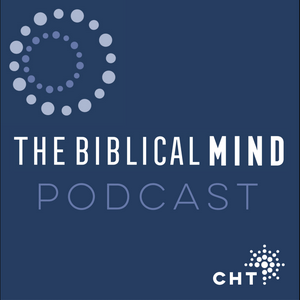
Descarga la app gratuita: radio.net
- Añadir radios y podcasts a favoritos
- Transmisión por Wi-Fi y Bluetooth
- Carplay & Android Auto compatible
- Muchas otras funciones de la app
Descarga la app gratuita: radio.net
- Añadir radios y podcasts a favoritos
- Transmisión por Wi-Fi y Bluetooth
- Carplay & Android Auto compatible
- Muchas otras funciones de la app


The Biblical Mind
Escanea el código,
Descarga la app,
Escucha.
Descarga la app,
Escucha.



